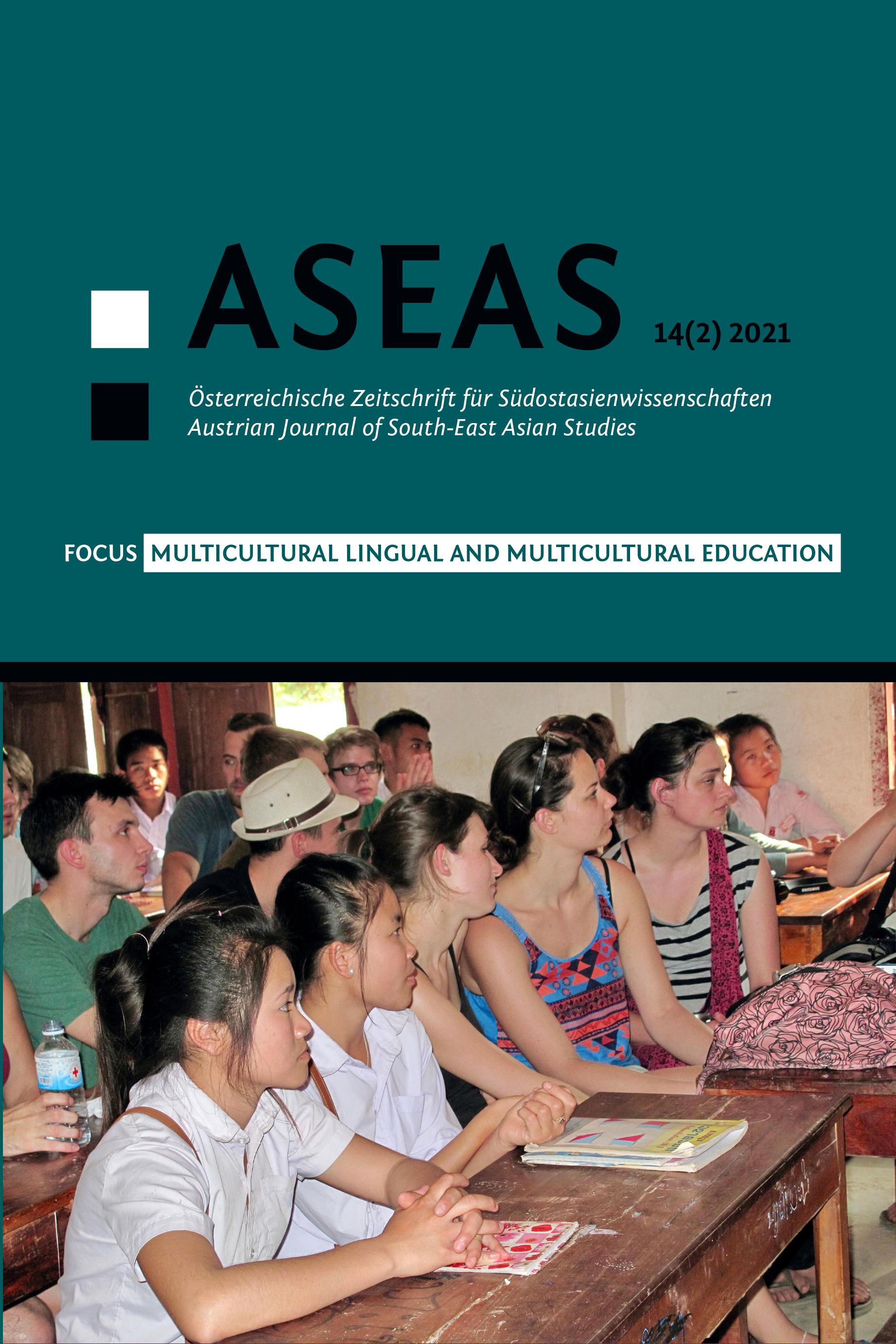Participatory Engagement for Sustainable Innovation in Karen Communities
DOI:
https://doi.org/10.14764/10.ASEAS-0062Keywords:
Karen, Ecomuseum, Social Design, Heritage, Sustainable EngagementAbstract
This paper reports on heritage fieldwork by the Mahidol Cultural Anthropology Museum, carried out from 2019 to 2020, with a group of four Karen villages in Doi Si Than, or ‘Four Creeks Mountain’, a valley in the remote Northwest of Thailand. The research aimed to find and introduce sustainable business models in Karen ethnic communities using essential heritage products and intangible practices. Additionally, the community offers an example of Thai integrated farming, which we analyzed as a case of innovative, intergenerational heritage practice, and that we helped turn into a more sustainable economic mainstay of the community. The method used throughout the process was participatory action research blended with social design, as well as building on a long-term engagement. As a theoretical framework, we adapted Design Thinking to Paulo Freire’s Education of Liberation model to create an eclectic ‘Four Creek Mountain’ approach in order to do justice to local circumstances and establish a shared set of explicit social values. We compared the results with de Varine’s concept of the ecomuseum to find a suitable action perspective. The findings show that local heritage practices can successfully be used to re-engage communities with today’s broader society on the condition they are embedded in intergenerational co-operation based on trust, and with social designers (urban curators) acting as connectors, thus ensuring the community’s ownership of the process.
References
Corsane, G., Davis, P., & Murtas, D. (2008). Place, local distinctiveness and local identity: Ecomuseum approaches in Europe and Asia. In M. Anico, & E. Peralta (Eds.), Heritage and identity (pp. 47-62). Routledge.
D school. (2020). Bootcamp bootleg: Institute of Design at Stanford. https://dschool.stanford.edu/resources/the-bootcamp-bootleg.
Davis, P. (2011). Ecomuseums: A sense of place (2nd ed.). Continuum.
de Varine, H. (2017). L’écomusée singulier et pluriel. Un témoignage sur cinquante ans de muséologie communautaire dans le monde. L’Harmattan.
Desvallées, A., & Mairesse, F. (Eds.). (2010). Key concepts of Museology. Armand Colin.
Freire, P. (2014). The pedagogy of the oppressed. Bloomsbury Academic.
Geertz, C. (1973). The interpretation of culture. Basic Book.
Ichikawa, M. (2019). The relationship between S’gaw Karen people and the supernatural. MA Thesis, Cultural studies, Mahidol University.
Janssen, J., Luiten, E., Rouwendal, J., & Renes, H. (2014). Character sketches. National heritage and spatial development research agenda. Cultural Heritage Agency of the Netherlands.
Knoop, R., & Schwarz, M. (2017). Straatwaarden: in het nieuwe speelveld van maatschappelijke erfgoedpraktijken. Reinwardt Academy AHK.
Mezirow, J., & Taylor, E. W. (2009). Transformative learning in practice: Insights from community, workplace, and higher education. Jossey-Bass.
Mikkelsen, B. (1995). Methods for development work and research. Sage.
Nederveen Pieterse, J. (2010). Development theory. Sage.
Office of the National Economic and Social Development Board. (2007). Sufficiency economy. Implications and applications. Sufficiency Economy Movement Sub-committee, Office of the National Economic and Social Development Board.
Potter, H. (2017). Ecomuseum beginning: Hughes de Varine, Gorge Henri Riviere and Peter Davis. https://ecomuseums.com/ecomuseum-beginnings-hughes-de-varine-georges-henri-riviere-and-peter-davis/
Riva, R. (2017). Ecomuseums and cultural landscapes. State of the art and future prospects. Maggioli.
Russell, R., & Winkworth, K. (2009). Significance 2.0. A guide to assessing the significance of collections. Collections Council of Australia. https://www.arts.gov.au/sites/default/files/significance-2.0.pdf?acsf_files_redirect
Schwarz, M., & Elffers, J. (2010.) Sustainism is the new modernism: A cultural manifesto for the sustainist era. Distributed Art Publishers.
Schwarz, M., & Krabbendam, D. (2013). Sustainist design guide. BIS Publishers.
Schwarz, M. (2016). A sustainist lexicon. Seven entries to recast the future: Rethinking design and heritage. Architectura & Natura Press.
Simon, N. (2010). The participatory museum. Museum 2.0.
Simon, N. (2016). The art of relevance. Museum 2.0.
Su, D. (2008). The concept of the ecomuseum and its practice in China. Museum International, 60, 29-39.
Downloads
Published
Issue
Section
License
Copyright (c) 2021 Society for South-East Asian Studies (SEAS)

This work is licensed under a Creative Commons Attribution-NonCommercial-NoDerivatives 4.0 International License.
For all articles published in ASEAS before December 2014 and after July 2022, copyright is retained by the authors. For articles published between January 2015 and June 2022, the Society for South-East Asian Studies (SEAS) is the copyright holder. Articles published in ASEAS before December 2019 are licensed under the following Creative Commons License: Attribution-NonCommercial-NoDerivs 3.0 Unported. Articles published after that date are licensed under the following Creative Commons License: Attribution-NonCommercial-NoDerivs 4.0 International. In both cases, this means that everybody is free to share (to copy, to distribute, and to transmit the work) under the following conditions:
-
Attribution — You must give appropriate credit, provide a link to the license, and indicate if changes were made. You may do so in any reasonable manner, but not in any way that suggests the licensor endorses you or your use.
-
NonCommercial — You may not use the material for commercial purposes.
-
NoDerivatives — If you remix, transform, or build upon the material, you may not distribute the modified material.


